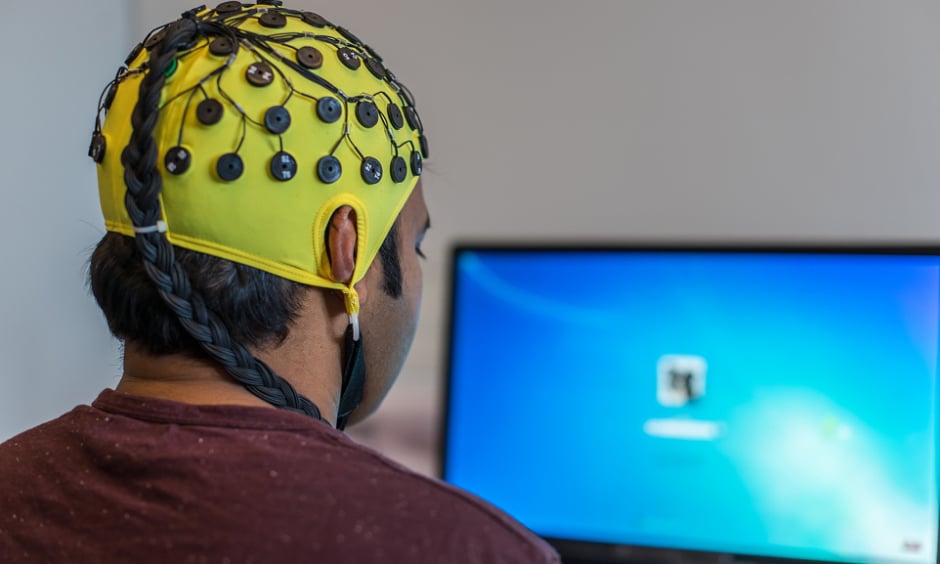MEASURING brainwaves can ascertain levels of speech understanding in patients who cannot participate in conventional tests, according to researchers from KU Leuven, Leuven, Belgium and the University of Maryland, Maryland, USA. The test should enable a more objective and accurate diagnosis for individuals such as coma patients who are unable to respond verbally and could also help the development of smart hearing devices in the future.
EEG
The team used EEG, an electrophysiological monitoring technique, to measure brainwaves in people while they listened to a sentence to automatically and objectively determine whether they have understood what has been said; this was achieved by focussing solely on the brainwaves linked to the speech sound.
“Our technique uses 64 electrodes to measure someone’s brainwaves while they listen to a sentence,” explained lead author Dr Tom Francart, KU Leuven. “We combine all these measurements and filter out the irrelevant information. If you move your arm, for instance, that creates brainwaves as well. So we filter out the brainwaves that aren’t linked to the speech sound as much as possible. We compare the remaining signal with the original sentence. That doesn’t just tell us whether you’ve heard something but also whether you have understood it.”
Accurate Diagnosis
Currently, the only method used to test speech understanding requires the patients’ active co-operation. After hearing a word or sentence, they have to repeat it so the audiologist can check whether it has been understood. In contrast to this method, the new test can be used in patients who are unable to verbally respond, such as young children and people who are in a coma. Additionally, it should provide a more accurate diagnosis even in patients who can participate in the current test, because it is not affected by the listeners state of mind: if they have stopped paying attention for example.
Smart Hearing Aids
The authors also hope that the new technique can be utilised to aid the creation of more effective smart hearing aids and cochlear implants. Through built in electrodes, such devices could potentially measure how well a message had been understood and whether the settings need to be adjusted.
James Coker, Reporter
For the source and further information about the study, click here.








